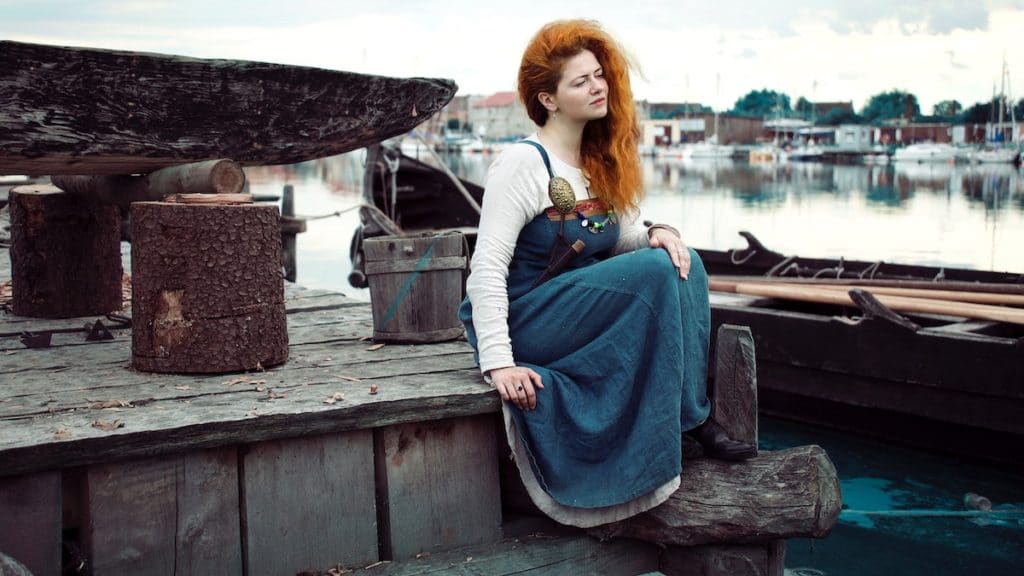I love a good period drama. Give me corsets and conflicts, inappropriately armed Celts, or a warrior princess in New Zealand, and I’m all in. I love the clothes and the combats, the grit and glamor, and the invariable wink and a nudge at the fourth wall when they have to address topics for a modern sensibility.
What I don’t love, in fact what I hate is when they straight wash, omit, misrepresent, or only show negative stories about queers, and hide behind the argument of ‘historical accuracy.’
Historically Gay
As one of my favourite podcasts, History is Gay, reminds us on the 15th of every month, history is now and has always been gay. We’ve always been here, and we’re always going to be here.
It would be a lie to say our stories have always been happy. It would be a lie to say that today our stories always end happily. We queers are humans, and humans live lives of complex dramas where we make mistakes, we hurt each other, and we struggle to find peace, just like every other human.
But it would be a gross misrepresentation of our existence if our stories only told tales of our unhappy endings. Yes, we have been bullied and oppressed throughout history, but those aren’t our only stories. Not by a long shot.
Historically Incomplete
When a period drama takes on the task of showing humanity, they do so with an advantage of television. On television, you have the control to show hidden stories without prejudice. You can tell a story of marginalized people positively even in the darkest times.
As time has progressed, and we have moved from the 60s to the 80s to the 2000’s and now to the 2020s, we have more power than we used to. We have the power to show our stories, contextually. While in the early days of television, we were hamstrung by the limitations of networks, in today’s streaming landscape we can show more.
If you look at Downton Abbey, their handling of a gay storyline was fraught with angst (proper angst) and tragedy, while keeping the humanity intact. Barrow was suicidal, he was depressed, he had a terrible time. For him, being gay was illegal. But the show made sure you felt for him and his situation.
The problem is that what we get instead are shows like Father Brown (which is a much more light hearted drama) and they jump to the sensationalist view. The first four queer women you meet on that show were either murdered or the killers. The next was driven insane. The last (a woman who drops out of the convent to be with her best female friend) was moderately happy but her girlfriend doesn’t get her name spoken on screen. It wasn’t until the sixth season that they slowly began the turn into telling queer positive stories.
They have so much opportunity to tell these stories in a positive way, and instead they chose not to. Even Mrs. Marple has a well told, mostly positive, queer story (albeit one of the ladies is murdered). Christie shows that even with death, you have a way to tell stories like that with care and kindness.
Historically Correct
This doesn’t mean I don’t allocate leeway to historical dramas. They’re always subject to the time and place of their existence, and they are obligated to a degree to portray things realistically. But at the same time, it’s 2020. We should no longer be only showing people the darker side of history, not even for Drama’s sake.
We should peel back the curtain and show the stories about how queers have always been here. Most recently this was done on Apple TV+’s For All Mankind, where a lesbian goes to the moon. We’re told the story of her hard choices and sacrifices in order to achieve her dream. For All Mankind manages to balance the unhappy story of a closeted lesbian while still showing her entirely in a positive light.
Historically Joyful
It’s incumbent on television today to reflect the truth. Television must honestly depict stories of merit or value, even if that value is just kids exploring a creek, because the world is not homogenous. Yes, the point of television is to entertain, but it’s also to inspire.
If you walk away from a movie, or a book, or a TV show and think nothing of the time you’ve spent, then the medium wasted their opportunity. We should be thinking about these things, and even cotton candy content has the ability to make us dream and imagine.
And because of that ability, that power, it’s important that television remember how to use its power to tell a new story that resonates. Make us feel, make us laugh, but tell our stories. Stop exploiting our stories and take a chance to tell us about the heroes too.
Trust me. We’ll watch.
